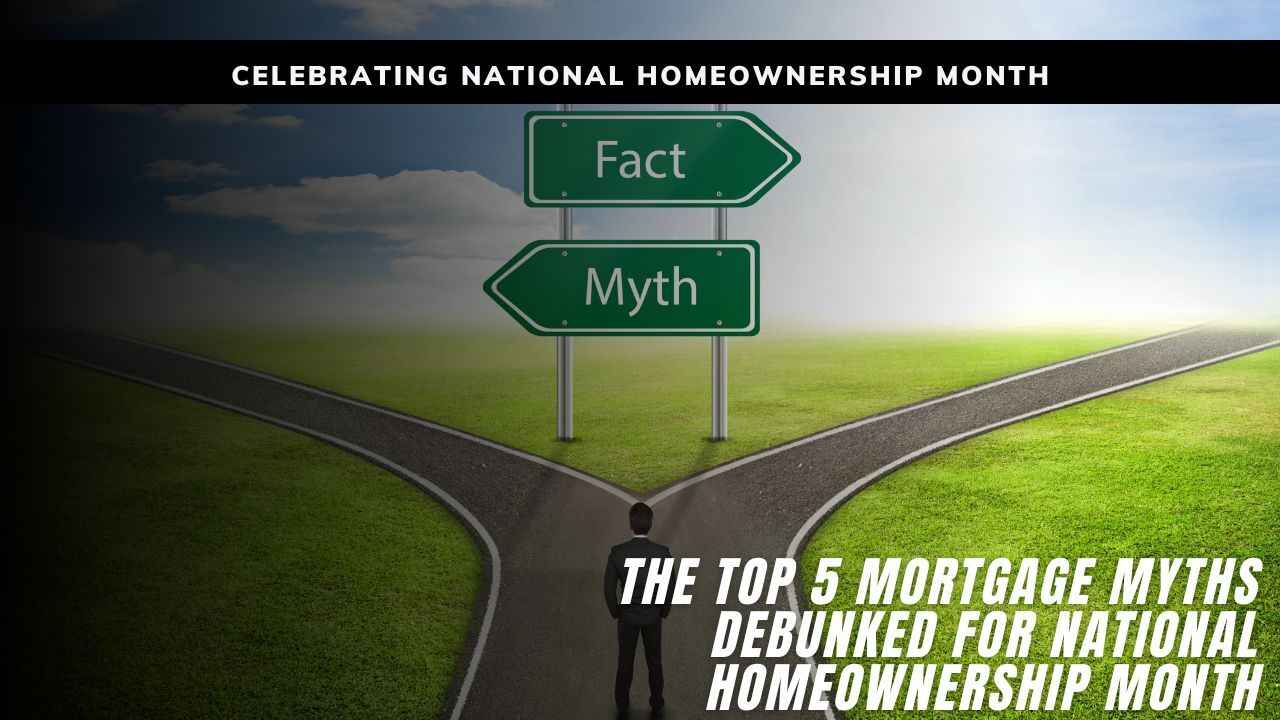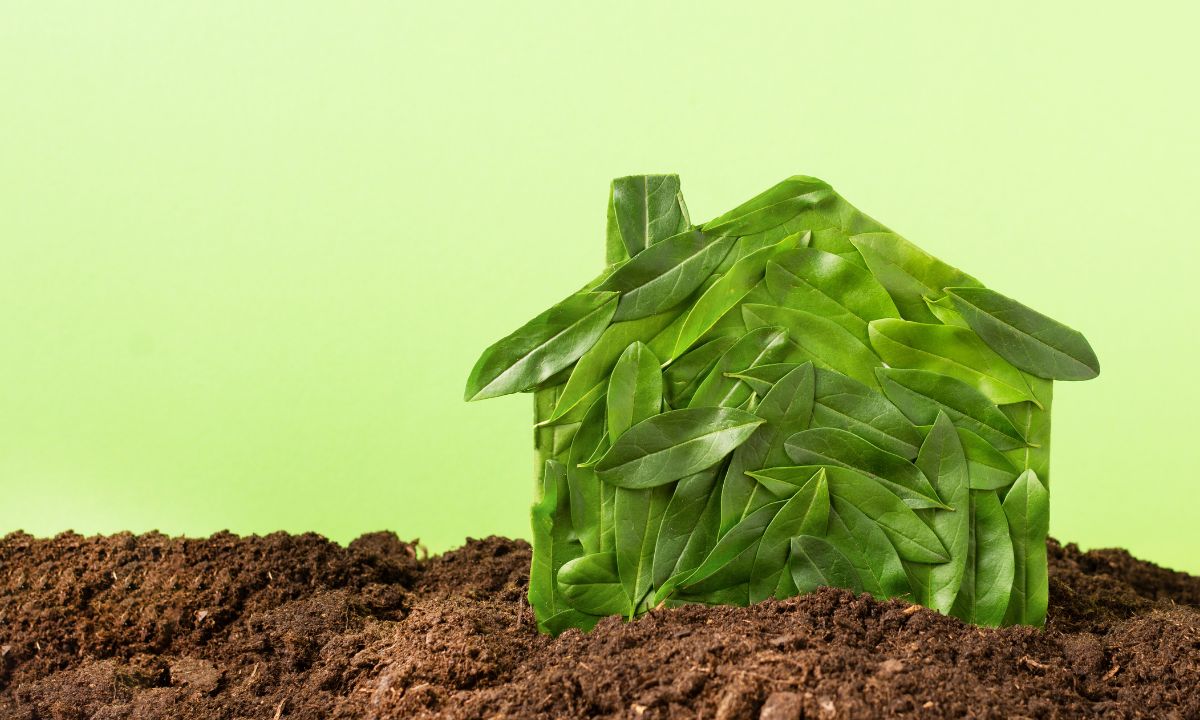 June is National Homeownership Month, a time to shine a spotlight on the opportunities and advantages of owning a home. It is also the perfect moment to clear up some of the most common myths that hold people back from pursuing a mortgage. Many potential buyers delay their homeownership dreams because of outdated beliefs or misinformation. Let’s break down the top five myths and explain what is really true in today’s mortgage world.
June is National Homeownership Month, a time to shine a spotlight on the opportunities and advantages of owning a home. It is also the perfect moment to clear up some of the most common myths that hold people back from pursuing a mortgage. Many potential buyers delay their homeownership dreams because of outdated beliefs or misinformation. Let’s break down the top five myths and explain what is really true in today’s mortgage world.
Myth 1: You need perfect credit to qualify for a mortgage
This is one of the biggest misconceptions. While credit scores do impact your loan options and interest rate, you do not need a perfect score to qualify. In fact, many loan programs are designed to help those with moderate or even fair credit. FHA loans, for example, are available to borrowers with credit scores as low as 580 in many cases. The key is to work with a mortgage professional who can help you understand your credit profile and identify the right loan product for your situation.
Myth 2: You have to put 20 percent down
The 20 percent rule is outdated. While putting down 20 percent can help you avoid private mortgage insurance (PMI), it is not a requirement for most loans. FHA loans can require as little as 3.5 percent down, and some conventional loans offer 3 percent down payment options for qualified buyers. VA and USDA loans even allow zero down for eligible applicants. There are also down payment assistance programs that help bridge the gap for buyers who are short on upfront cash.
Myth 3: Getting pre-approved is the same as being approved
Pre-approval is a great first step, but it is not the same as final loan approval. A pre-approval means a lender has reviewed your finances and issued a preliminary decision. However, final approval involves a deeper dive during underwriting, where your income, assets, employment, and credit are all verified. Understanding the difference helps you avoid surprises during the homebuying process and keeps you better prepared.
Myth 4: It is cheaper to rent than to buy
While renting can seem more flexible in the short term, homeownership builds equity over time and offers long-term financial benefits. Mortgage payments can be more predictable than rising rents, especially with a fixed-rate loan. Plus, homeowners enjoy tax advantages and the chance to build wealth through property appreciation. Renting may feel more affordable now, but buying is often the smarter move for your future.
Myth 5: You cannot get a mortgage if you have student loan debt
Student loans do not automatically disqualify you from getting a mortgage. Lenders look at your overall debt-to-income ratio to determine affordability. If your income supports your current debts along with a projected mortgage payment, you may still qualify. In many cases, student loans are factored into your approval using adjusted payment methods that reflect your actual monthly obligations.
Why debunking these myths matters during National Homeownership Month
National Homeownership Month is about celebrating the benefits of owning a home and helping more people achieve that goal. Misinformation holds too many qualified buyers back. By separating fact from fiction, we empower more individuals and families to move forward with confidence. Understanding your options is the first step toward getting the keys to your future home.
If you have been on the fence about buying because of something you heard, now is the time to talk to a mortgage professional and learn what is truly possible. The road to homeownership may be closer than you think.
 In recent years, the concept of eco-friendly homes has gained significant traction, and for good reason. As awareness of environmental issues grows, more homeowners are seeking ways to minimize their carbon footprint while also reaping the benefits of sustainable living. We will discuss the world of eco-friendly homes, exploring their sustainable features and the potential cost savings they offer. From solar panels to energy-efficient appliances, there’s a plethora of options available to conscientious homeowners looking to make a positive impact on the planet.
In recent years, the concept of eco-friendly homes has gained significant traction, and for good reason. As awareness of environmental issues grows, more homeowners are seeking ways to minimize their carbon footprint while also reaping the benefits of sustainable living. We will discuss the world of eco-friendly homes, exploring their sustainable features and the potential cost savings they offer. From solar panels to energy-efficient appliances, there’s a plethora of options available to conscientious homeowners looking to make a positive impact on the planet.